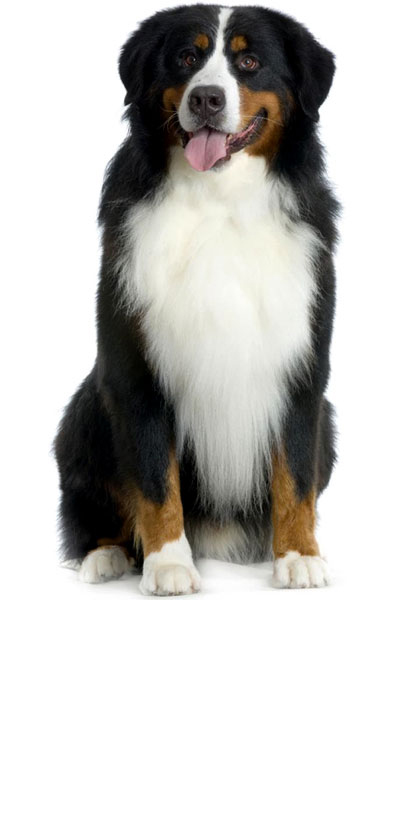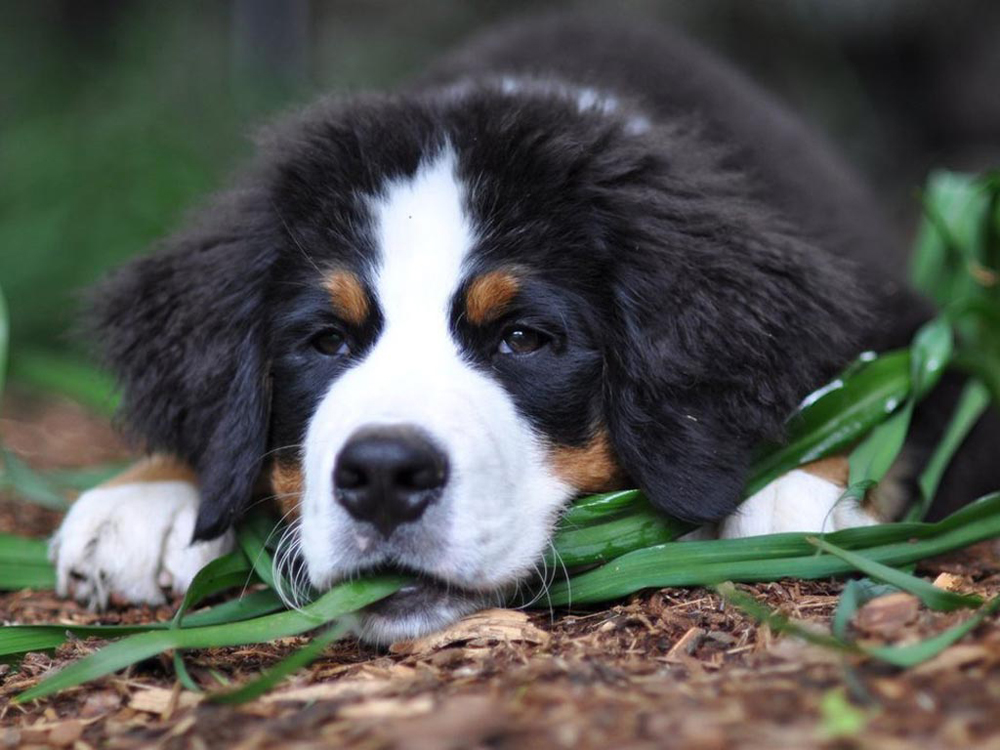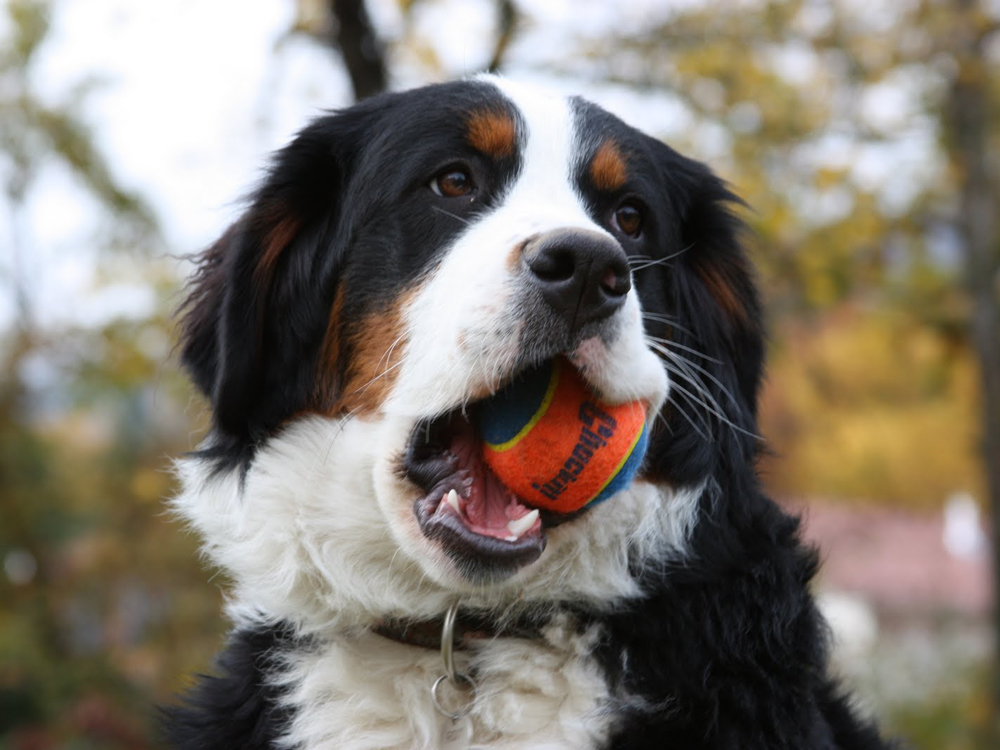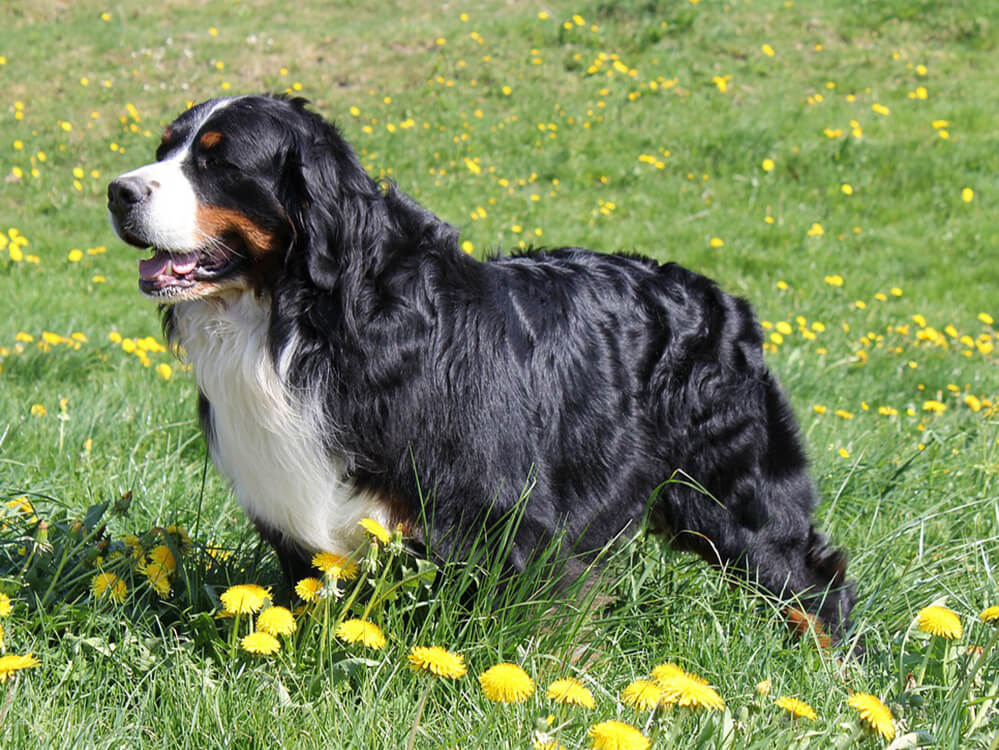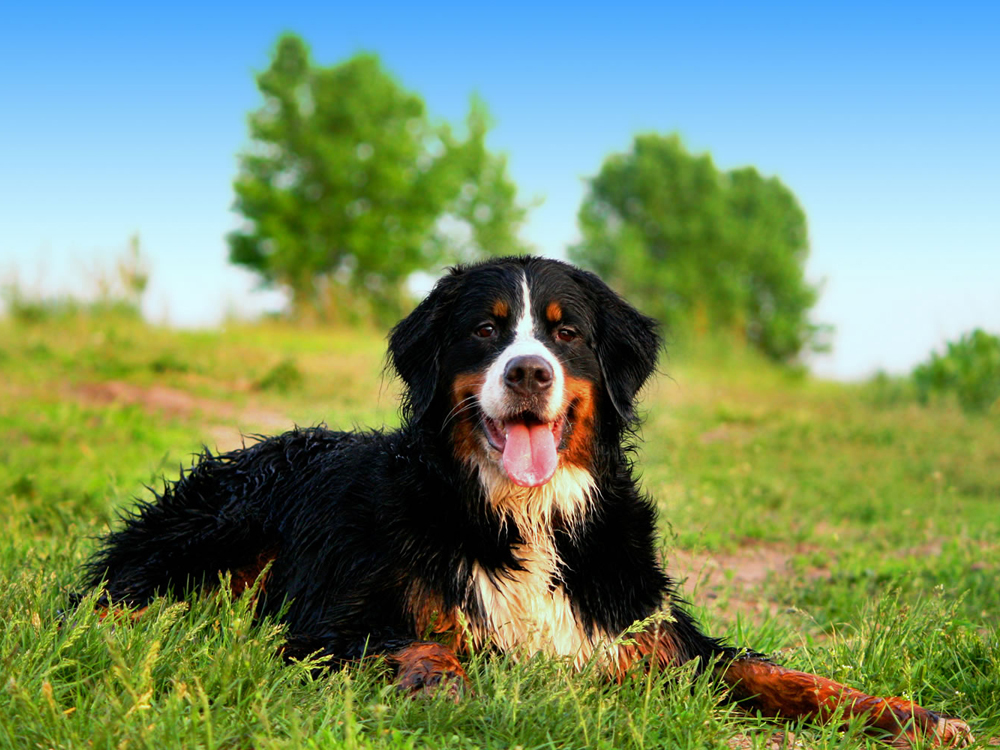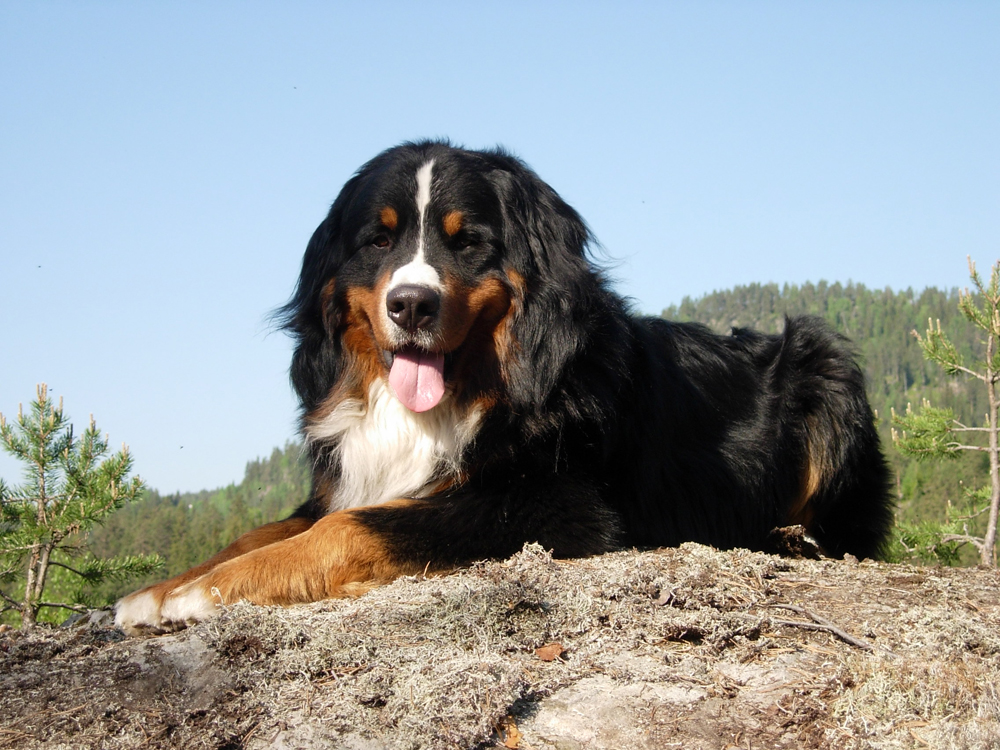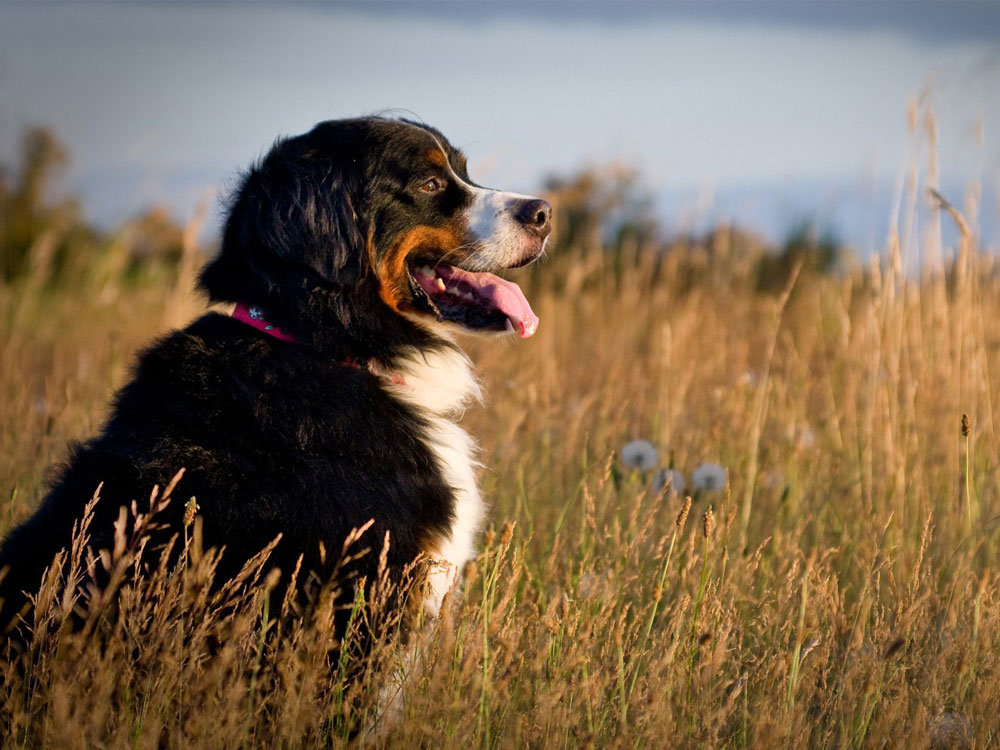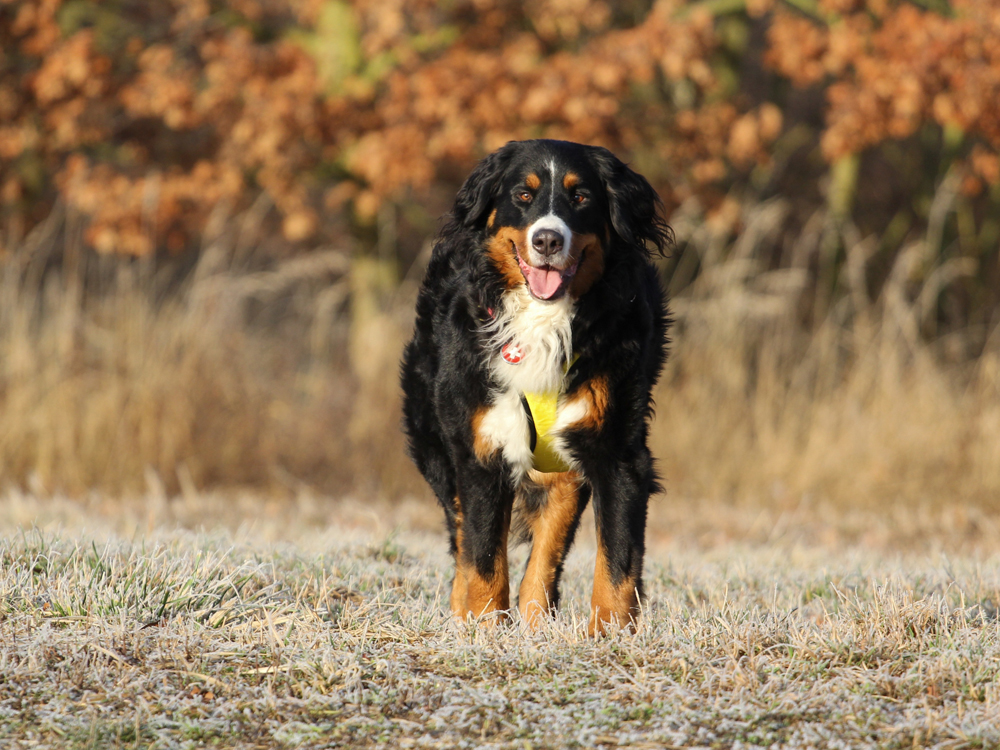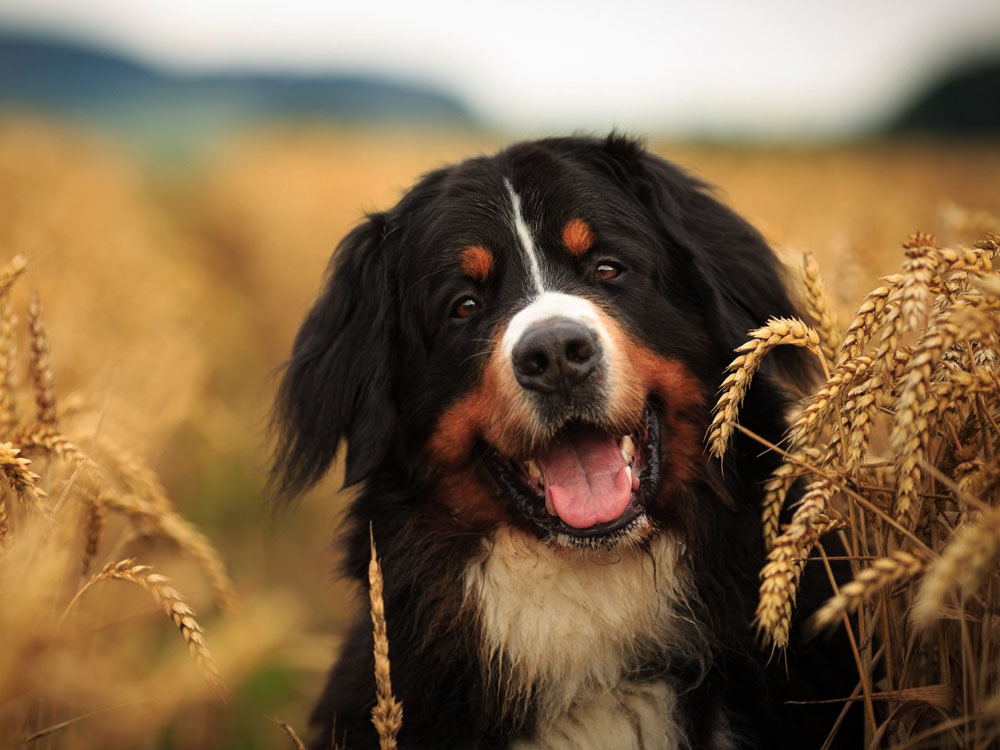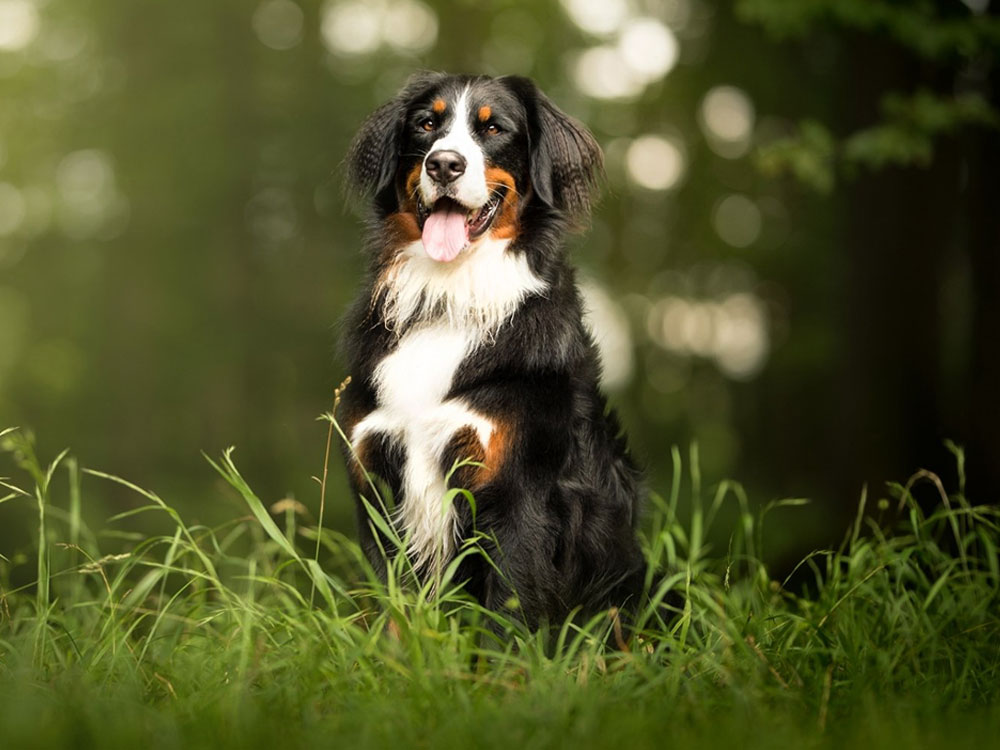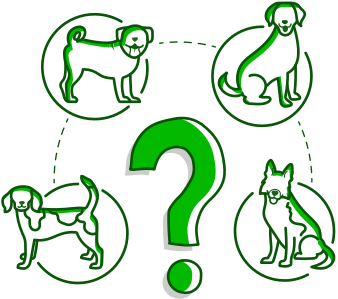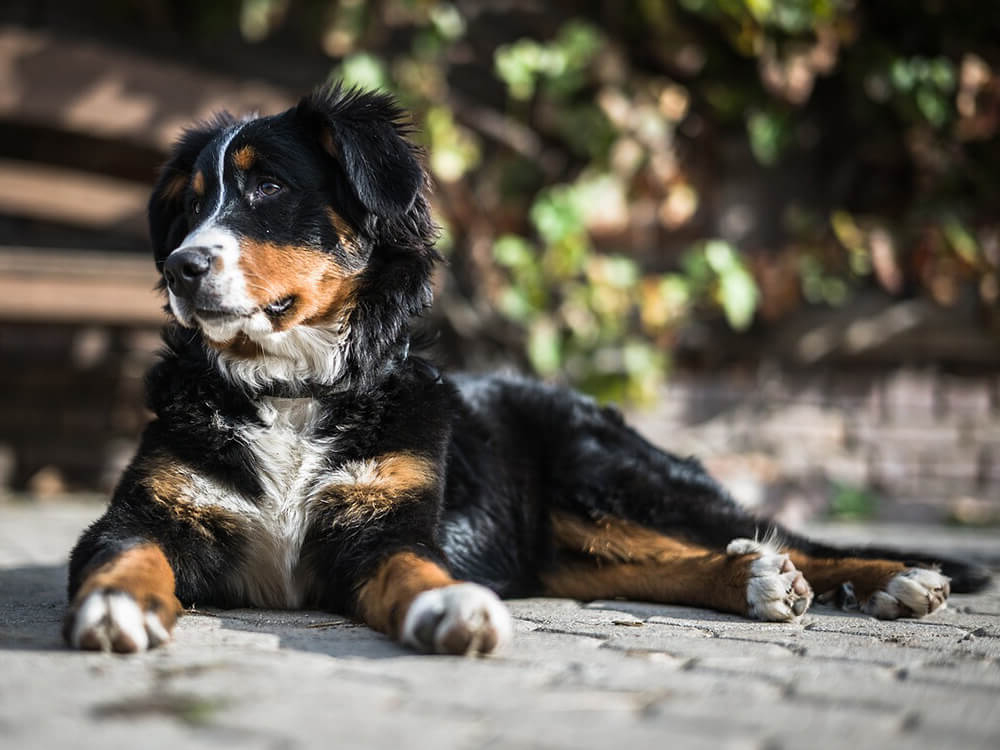
Bernese Mountain Dog Breed Pictures
Vital Breed Stats
| Height: | 61 - 71 cm M | 58 - 69 cm F |
| Weight: | 38 - 50 kg M | 36 - 48 kg F |
| Breed Group: | Utility Dog Group |
| Life Expectancy: | 7 - 10 years |
| KC Registered: | No |
Breed Characteristics
| Size: |  |
| Grooming: |  |
| Exercise Level: |  |
| Trainability: |  |
| Barking Level: |  |
| Good with Children: |  |
| Good with other pets: |  |
| Affectionate: |  |
| Protective: |  |
| Cost to Keep: |  |
Give a thumbs up if you love the Bernese Mountain Dog

0
More About the Breed
History
The Bernese Mountain dog is believed to be a descendant of ancient herding breeds found at the Swiss Alps during the Roman times, including the Molasser. Called the Berner Sennenhund in German, it is part of the four-dog group called the Sennenhund (Swiss Mountain dogs). The other three breeds are the Entlebucher (Entlebucher Mountain dog), the Appenzeller (Appenzeller Mountain dog), and the Grosser Schweizer (Great Swiss Mountain dog). The four breeds were created in different communities in Switzerland to suit the specific needs of the people.
The first Bernese Mountain dogs were taken outside Switzerland after World War I to Holland and then to the US. In the 1930s, British breeders brought the breed to England. The progress of the breed outside its homeland had been disrupted by World War II, but resumed in 1945. The breed is currently recognised by major pedigree registries, including the American Kennel Club and the Kennel Club.
Appearance
The Bernese Mountain dog is a large attractive dog that has a sturdy and strong overall appearance. The second largest of the Sunnerhunds, it stands 58–70 centimetres at the withers and weighs 70–120 pounds. It has a similarity with the golden retriever, but heavier and stockier. It has a strong head with a flat skull, straight muzzle, strong jaws with a perfect scissor bite, and a strong muscular neck. It has dark brown, almond-shaped eyes and medium-size triangle ears. The breed’s body is compact, finished off with a bushy tail that reaches just below the hock.
What makes the Berner an eye catcher is its gleaming gorgeous coat. Its glistening jet-black colour is paired with a rich reddish brown marking over the eyes, cheeks, chest, and legs. Giving it a distinguished appearance is a nice white blaze and white marking on the chest. The coat is long, soft, and silky, which is slightly wavy but not curly.
Grooming
It has moderate to high grooming needs because of heavy shedding and susceptibility for mats and tangles. Although the Bernese Mountain dog does not need to be trimmed or clipped often, it needs frequent bathing especially if it spends a lot of time outdoors, and lots of brushing to retain their natural sheen. It sheds all year and heavier during spring and autumn, so more brushing should be done.
Pay specific attention to its ears, which are prone to bacteria build-up and yeast infection. Also keep its nails short—clicking on a hard floor means they need trimming. Brush its teeth at least two times a week to maintain healthy teeth and gums.
Temperament
Intelligence
The breed loves being part of family activities and is best suited for homes that are never empty. There should always be someone to accompany the dog since it develops separation anxiety. It is not suited for small box apartments since this large breed needs ample space to move around. The Berner is a cooperative dog that is highly trainable. Take advantage of its strong ability to work and eager-to-please attitude for basic obedience and task-related trainings.
It is important to understand that breeds do have general characteristics, but each dog is unique. Its overall disposition and intelligence are affected by environment, training, and socialisation.
Nutrition
- Senior and less active: up to 1,800 calories daily
- Typical adult: up to 2,000 calories daily
- Physically active/working dog: up to 3,000 calories daily
Feeding
Health
Exercise
Cost of Ownership
Raising a dog can be costly, so you have to be financially prepared. A well-bred Bernese Mountain dog can cost £1,000 to £1,200, and some will even be higher. With this dog’s popularity, some breeders produce low-quality Berners to take advantage of the demand. Make sure to only buy from reputable breeders and learn about the puppy’s health history.
Aside from basic equipment and toys that will initially cost around £200, high-quality food and treats for this large breed will cost as much as £70 per month. Routine veterinary costs can add up to £1,000 annually. However, health problems in the breed may contribute to costlier veterinary care especially if long-term treatments are needed. This is the reason why you should also obtain pet insurance. Monthly costs are usually £50 for basic and £100 for lifetime coverage.
Is a Bernese Mountain Dog Right for You?
- The Bernese Mountain dog is a large dog with a huge heart. It is loving to its family and has patience for children.
- It has a beautiful coat with high grooming needs.
- The Berner is prone to many health issues and may have a short lifespan.
- It loves being a part of a family, hence it should not be left alone as it may suffer from separation anxiety.
- The breed is highly trainable but slow to mature, so early training is recommended.
